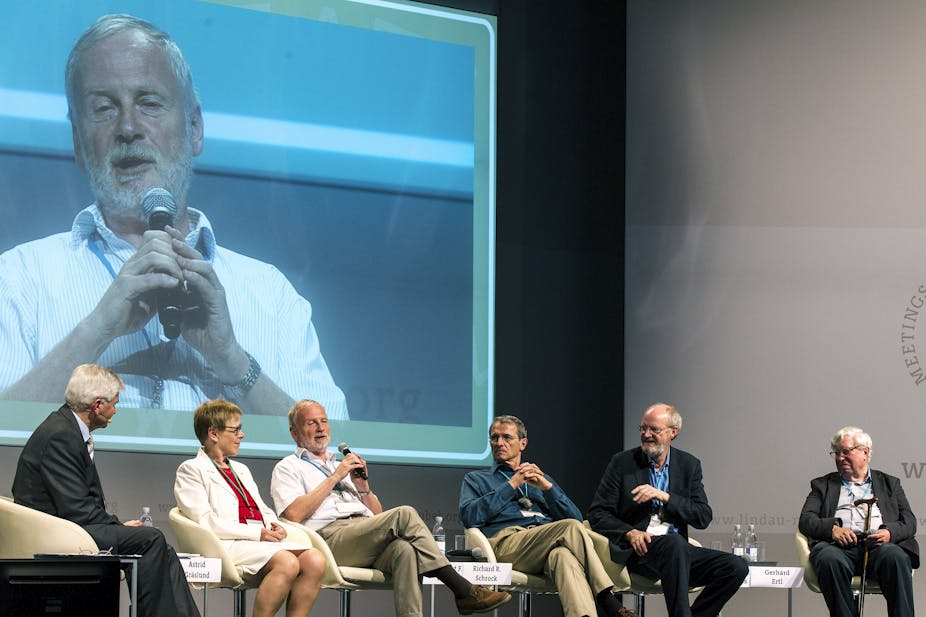Hartmut Michel won the Nobel Prize in Chemistry in 1988 “for the determination of the structure of a photosynthetic reaction centre”, which helped reveal details of one of nature’s most useful processes.
In 2012, Michel wrote an editorial titled “The Nonsense of Biofuels” in Angewandte Chemie International Edition, a leading chemistry journal. He argued that the amount of energy produced by biofuels is only a little more than that invested in growing and manufacturing them. A combination of solar cells, batteries and electric cars, he suggests, is 600 times more effective at harnessing sun’s energy than biofuels, which are nothing but a byproduct of sunlight.
Akshat Rathi, science and technology editor, spoke to Michel about his view on biofuels.
Has there been a change in public consensus on biofuels?
I think industry people know that biofuels are not great. The politicians are becoming familiar [with the idea]. You may know that the European Union proposed a directive to say that car fuel should contain 20% biofuels. They have now reduced it to only 10%. The Green Party in Germany, which was in favour of biofuels, is now seeing the negative consequences.
Is there a political reason for switching to biofuels because it may, for example, reduce dependence on oil from Saudi Arabia or gas from Russia?
Germany can never be independent of such sources. But the efficiency of biofuels is so low that it cannot be used on its own to fuel our vehicles.
The dependency cannot go down either, there will be some indirect consequences. For example, at present Germany uses only 20% of agricultural land for crops used for biomass production. The money farmers earn for this is probably double compared to growing wheat. As a result of that Germany, which was a big exporter of wheat, now imports it.
What about second generation biofuels which will have higher efficiency or will use cellulose as biomass?
The efficiency will only be double. Even with that, if all agricultural land in Germany was directed to biofuels, we will get only enough to replace up to 20% of all fuel consumption in Germany.
So if biofuels is not an option, how would you argue that there should be more research in photosynthesis, an area for which you received the Nobel Prize?
The population is increasing, so people will eat more food. The standard of living is also going up, so people want more meat. Indians eat more chicken and Chinese eat more pork and beef. To produce one kilogram of beef you need 10 kilograms of wheat and for the same amount of chicken you need six kilograms of wheat.
To keep up with this we need more agricultural land, but we don’t have enough of that. So there is clearly need to do more research in photosynthesis for food production. If we need to double food production in the next 30 years, I don’t see how this can happen without the right research.
A version of this interview was published on the Lindau Nobel Laureates Meeting blog.

